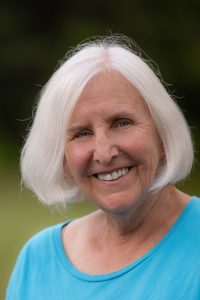Biography
Joy was raised in a family in which helping others less fortunate was the norm. After a varied career as a teacher, curriculum developer, workshop facilitator, staff developer, and school administrator she retired from the public school system and worked at the university level with Masters’ and Doctoral students. While doing so she received the Sperling Award for Teaching Excellence. Her educational studies taught her to question the status quo and to look for alternative ways to solve problems.
On a retirement trip, she visited schools in Tanzania and saw the desperate wish for children there to obtain an education. In a country where children start primary school speaking only their tribal language but are taught in the national language of Swahili, they face educational challenges immediately. If they qualify to attend secondary school and can pay the fees to do so, the language of instruction is English even though they have not had any previous instruction in that language. Rote learning without understanding becomes the norm. Consequently, Joy became involved with the Canadian Harambee Education Society (http://www.canadianharambee.ca), an NGO that provides scholarships so that needy but bright girls can attend secondary school in Kenya and Tanzania. CHES focuses on the education of girls for “if you educate a man, you educate an individual, but if you educate a woman, you educate a family” – an African saying.
Since 2008 as CHES’ Executive Director, Joy has overseen the charity’s operations. Her initial background in curriculum development enabled her to develop a 4-year oral-based English-Immersion program for Tanzanian CHES students and train educators in teaching for understanding. As a result, a minimum of 50% of CHES students go on to further studies and become leaders in their communities and their country. She makes regular trips to both Kenya and Tanzania and is proud to call individuals there her “African family”.
Joy also instructs Taoist Tai Chi classes, is the registrar for the Langley Power and Sail Squadron, has served as president of the BCRPVPA, enjoys hiking with family and friends, and is a passionate photographer.
Meeting Joy
What is your most memorable experience from your time in the Faculty of Education?
I was fortunate to be in a specialized Science education program of just 7 students in discovery learning where we worked one-on-one with a faculty member. I went out weekly to a classroom to implement this new approach to learning and saw it in action, not just as a new unproven theory. This program involved experiential learning to solve problems rather than just memorizing concepts and facts. Consequently, instead of being frustrated by problems, I have looked for create ways to meet challenges and have welcomed and embraced changes within the education system.
Where has your education from the Faculty of Education taken you in your career?
Thanks to the specialized program I was in at UBC, I became a curriculum leader within my school district, applying this knowledge to other areas of studies and needs within the educational field. Being a learning omnivore, I embraced new learnings and opportunities and was very involved in both curriculum and staff development. After receiving my M.A. (Ed), I served as a school administrator for 13 years during which time I pursued my doctorate in educational leadership. Upon retirement from the public school system, still having a passion for learning and helping others, I worked in the university system for 10 years with Masters’ and Doctoral students in education.
Where do issues of inclusion find a place in your life or at work?
My work with the Canadian Harambee Education Society is one of total inclusion as we are a registered charity and NGO that is a non-profit, non-sectarian, and non-political society. All girls in the areas where we work who qualify for secondary school placements but need financial assistance in order to attend, are welcome. Tribal affiliation, religion, or physical disability are not barriers to inclusion.
Do you have any words of wisdom for current students? Newly graduated folks?
Don’t become a teacher if it is just something that will give you a professional status and salary – you will never be happy with your life. Also, being a true educator is not just doing a good job in a classroom. To be successful and fulfilled, you must love what you do and have a passion for working with others. Be open to and willing to change with the needs of your students and the changing times. There will be highs and lows each day as you teach but your intrinsic joy in seeing an individual blossom, love learning, and feel safe being in your classroom is a reward unto itself. You should be able to say each day, “I have the best job in the world and truly am making a difference in the lives of those I teach”.
